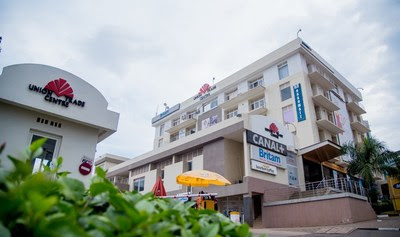WALTHAM, Mass. et SHANGHAI, Chine, 07 sept. 2022 (GLOBE NEWSWIRE) — Zenas BioPharma, une société biopharmaceutique mondiale déterminée à devenir un leader dans le développement et la commercialisation de thérapies immunitaires pour les patients dans le besoin à travers le monde, a annoncé aujourd’hui la nomination de Simon Lowry, M.D., au poste de directeur médical de la société. Le Dr Lowry apporte plus de 20 ans d’expertise clinique dans la conception et l’exécution de programmes cliniques de stade précoce à avancé à Zenas, où il dirigera les fonctions cliniques, médicales et de pharmacovigilance de la société au niveau international.
« Nous sommes ravis d’accueillir le Dr Lowry au sein de Zenas à ce moment crucial pour la société, alors que nous commençons deux essais d’enregistrement de phase trois pour notre principal produit candidat, l’obexelimab, au quatrième trimestre de cette année, et que nous entamons les premiers essais cliniques sur l’homme pour plusieurs programmes en cours », a déclaré Hua Mu, M.D., Ph. D, président-directeur général de Zenas. « Le leadership éprouvé du Dr Lowry, sa vaste expérience du développement clinique et sa grande expérience en matière d’essais cliniques à l’échelle mondiale renforceront davantage notre capacité à mener à bien notre mission, qui consiste à transformer la vie des patients dont les besoins médicaux ne sont pas satisfaits, en leur proposant les meilleurs traitements immunitaires de leur catégorie. »
Le Dr Simon Lowry a ajouté : « De nombreux patients atteints de maladies rares et auto-immunes ont besoin d’options thérapeutiques nouvelles et efficaces. L’équipe de Zenas, très expérimentée et talentueuse, a considérablement développé son portefeuille en très peu de temps, et je suis impatient de diriger l’avancement continu des programmes cliniques de Zenas jusqu’à la commercialisation, tout en renforçant le portefeuille de programmes innovants de la société. »
Le Dr Lowry est un médecin possédant 20 ans d’expérience dans des sociétés pharmaceutiques et biotechnologiques importantes et émergentes, où il a dirigé des programmes de développement fructueux, des équipes d’affaires cliniques et médicales, et interagi avec des organismes de réglementation dans plusieurs domaines de la médecine, y compris la rhumatologie, l’immunologie et l’ophtalmologie. Avant de rejoindre Zenas, le Dr Lowry était directeur médical chez Kinevant Science, une société biopharmaceutique au stade clinique, spécialisée dans le traitement des maladies inflammatoires et auto-immunes rares. Le Dr Lowry était auparavant responsable de la R&D en immunologie chez Roivant Sciences, où il dirigeait tous les actifs de l’immunologie en phase de développement clinique, et était un membre clé de l’équipe de direction. Il a également occupé le poste de directeur médical chez Sun Pharma North America, où il était responsable de quatre domaines thérapeutiques de marque (immunologie et dermatologie, ophtalmologie, neurologie et oncologie), et a dirigé tous les aspects du développement et des fonctions médicales (y compris le développement clinique, les informations médicales, la médecine de terrain, La recherche sur l’économie et les résultats de la santé (HEOR), les publications/communications médicales et les opérations). Au début de sa carrière, il a travaillé chez Novartis, où il a occupé le poste de vice-président, directeur de franchise des affaires médicales mondiales, immunologie et dermatologie, et chez Pfizer, où il a occupé des postes à responsabilité croissante, notamment celui de vice-président du groupe des affaires médicales en oncologie.
Avant sa carrière dans le secteur pharmaceutique/
À propos de Zenas BioPharma
Zenas BioPharma est une société biopharmaceutique mondiale déterminée à devenir un leader dans le développement et la commercialisation de traitements immunitaires pour les patients dans le monde entier. Avec un développement clinique et des activités aux États-Unis et en Chine, Zenas fait rapidement progresser un important programme de traitements innovants qui continue de s’accroître grâce à notre stratégie de développement commercial fructueuse. Notre équipe de direction expérimentée et notre réseau de partenaires commerciaux stimulent l’excellence opérationnelle pour apporter des thérapies potentiellement transformatrices afin d’améliorer la vie des personnes confrontées à des maladies rares et auto-immunes. Pour tout complément d’information sur Zenas BioPharma, veuillez consulter le site www.zenasbio.com et nous suivre sur Twitter à l’adresse @ZenasBioPharma et LinkedIn.
Contact auprès des investisseurs et des médias :
Joe Farmer
Zenas BioPharma
IR@zenasbio.com

